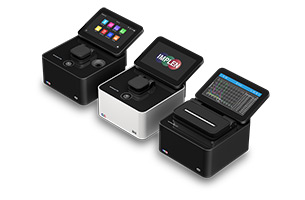Molecular Characterisation of the Faecal Microbiota in Patients with Type II Diabetes
The investigation provides molecular analyses of the faecal microbiota in type 2 diabetic patients. In order to characterise the gut microbiota in diabetic patients and to assess whether there are changes in the diversity and similarity of gut microbiota in diabetic patients when compared with healthy individuals, bacterial DNAs from 16 type 2 diabetic patients and 12 healthy individuals were extracted from faecal samples and characterised by PCR-denaturing gradient gel electrophoresis (DGGE) with primers specifically targeting V3 region of the 16S rRNA gene, as well as been sequenced for excised gel bands. The counts of Bacteroides vulgatus, Clostridium leptum subgroup and Bifidobacterium genus were assessed using quantitative PCR. By comparing species diversity profiles of two groups, we observed that there were no significant differences between diabetic and healthy group, although a few diabetic individuals (D6, D8) exhibited a remarkable decrease in species profiles. As for the similarity index, it was lower in inter-group than that in intra-group, which showed that the composition of gut microbiota in diabetic group might be changed due to diabetes status. Sequencing results also revealed that bacterial composition of diabetic group was different from that of the healthy group. B. vulgatus and Bifidobacterium genus were low represented in the microbiota of diabetic group, and the significant decrease was observed for Bifidobacterium by real-time PCR. Taken together, in this work we observed the characterisation of gut microbiota in diabetic patients, which suggests that the gut microbiota of diabetes patients have some changes associated with occurrence and development of diabetes.





